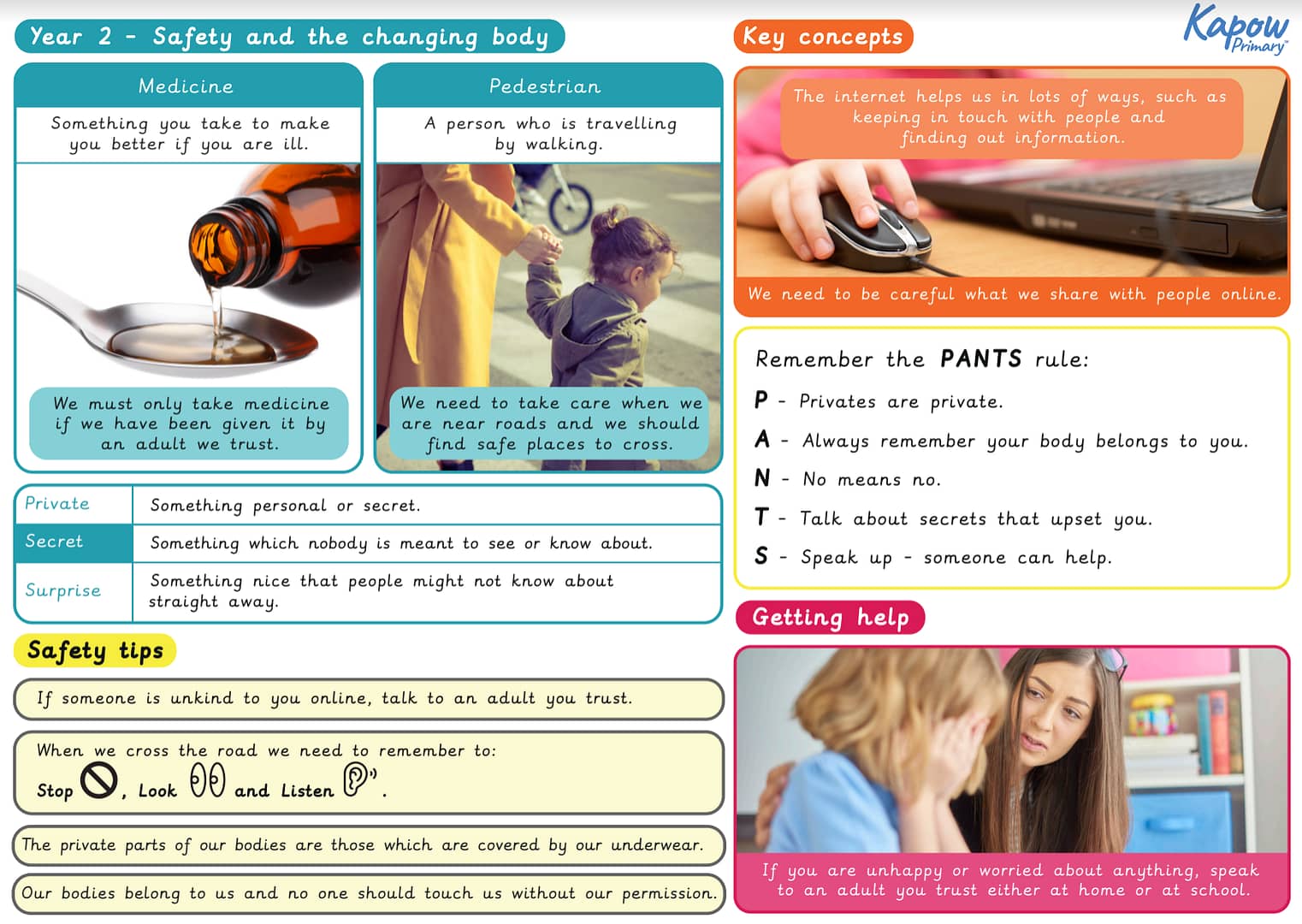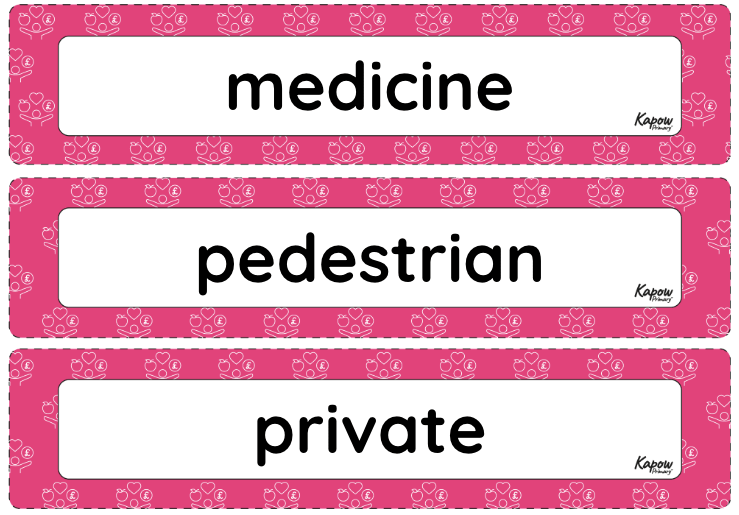Year 2: Safety and the changing body
This unit hub can be used to inform your medium term plan and to navigate to related resources.
New statutory RSHE guidance is here. We’re creating our brand new RSE & PSHE scheme ready for September 2026. Learn more
- Subjects >
- RSE & PSHE >
- Key stage 1 >
- Year 2 >
-
Y2 Safety and the changing body
Unit outcomes
Pupils who are secure will be able to:
- Understand how the internet can be used to help us.
- Create a poster with clear information about how to remain safe online and what to do if something online makes them feel uncomfortable.
- Understand what a secret is and what a surprise is.
- Know the name of parts of the body, including those of the private parts for their gender.
- Explain the PANTS rule.
- Understand how to keep safe near roads.
- Explain the rules for crossing the road.
- Understand when we should take medicines that can help us feel better when we are unwell.
Suggested prior learning
Y1 Safety and the changing body
Get startedLessons
Lesson 1: Introduction to the internet
- To understand what the internet is and how it can help us.
Lesson 2: Communicating online
- To understand how to stay safe when using the internet.
Lesson 3: Secrets and surprises
- To begin to understand the difference between secrets and surprises.
Lesson 4: Appropriate contact: My private parts
- To begin to understand the concept of privacy and the correct vocabulary for body parts.
Lesson 5: Appropriate contact: My private parts are private
- To understand safe and unsafe touches.
Lesson 6: Respecting personal boundaries
- To know my body is important and belongs to me.
Lesson 7: Road safety
- To understand ways to keep safe on and near roads.
Lesson 8: Crossing roads safely
- To understand ways to keep safe on and near roads.
Lesson 9: Staying safe with medicine
- To begin to understand how to stay safe with medicines.
Key skills
Key knowledge
Related content
Unit resources

Knowledge organiser: RSE & PSHE – Y2 Safety and the changing body
Aimed at pupils, a single page which gives key facts and definitions from the unit "Y2 Safety and the changing…

Videos: Safety and the changing body
A selection of Q&A videos with RSE & PSHE specialists, addressing unit-specific themes to support the delivery of safety and…

Vocabulary display – RSE & PSHE Y2: Safety and the changing body
A display version of the key vocabulary from the Year 2: Safety and the changing body unit.
Cross-curricular opportunities
Computing
‘Pupils should be taught to:
- use technology purposefully to create, organise, store, manipulate and retrieve digital content
- recognise common uses of information technology beyond school
- use technology safely and respectfully, keeping personal information private’
See National curriculum - Computing key stages 1 to 2.
Science
‘Pupils should be taught to:
- identify, name, draw and label the basic parts of the human body and say which part of the body is associated with each sense’
See National curriculum - Science key stages 1 to 2.
Art and design
‘Pupils should be taught:
- to use drawing, painting and sculpture to develop and share their ideas, experiences and imagination’
See National curriculum - Art and design key stages 1 to 2.
English
‘Pupils should be taught to:
- participate in discussions, presentations, performances, role play, improvisations and debates’
See National curriculum - English key stages 1 to 2.
Music
‘Pupils should be taught to:
- listen with concentration and understanding to a range of high-quality live and recorded music’
See National curriculum - Music key stages 1 to 2.
British values: Individual liberty.

